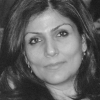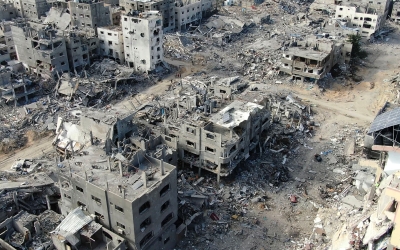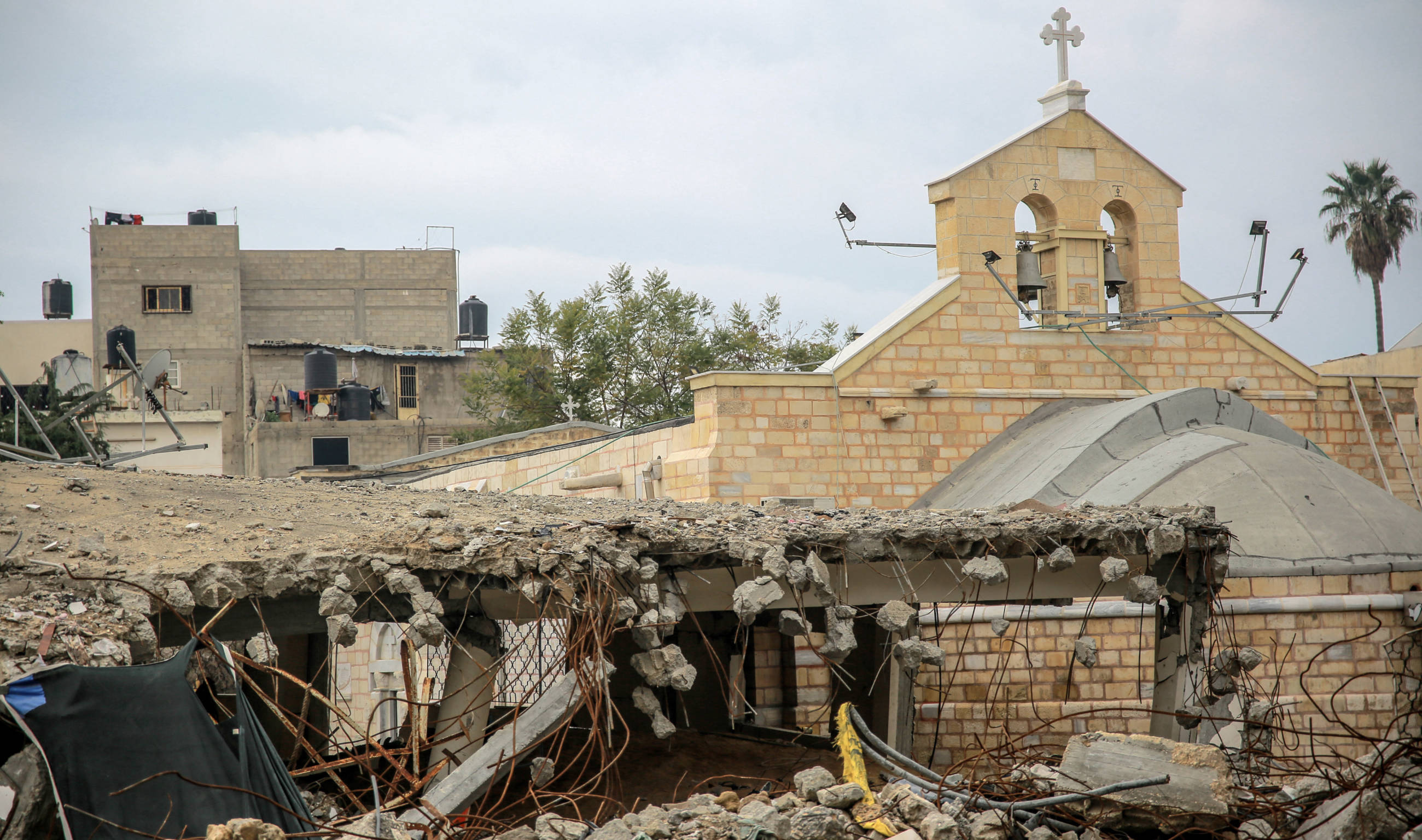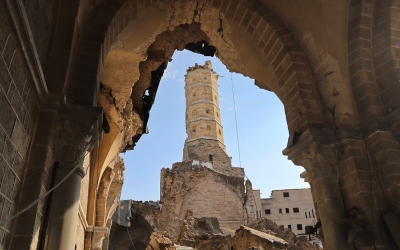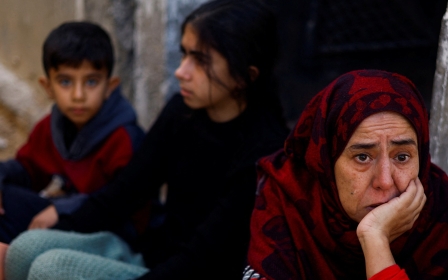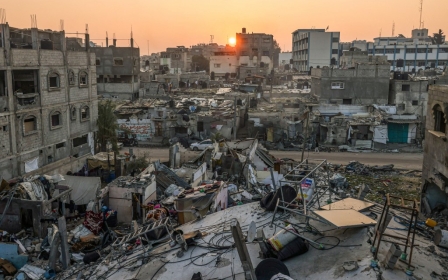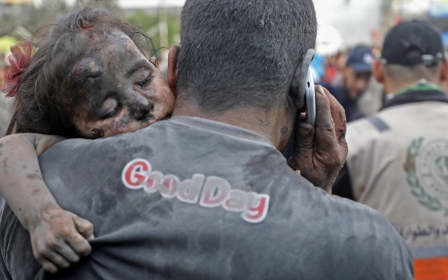War on Gaza: 'There is nothing left. They destroyed everything'
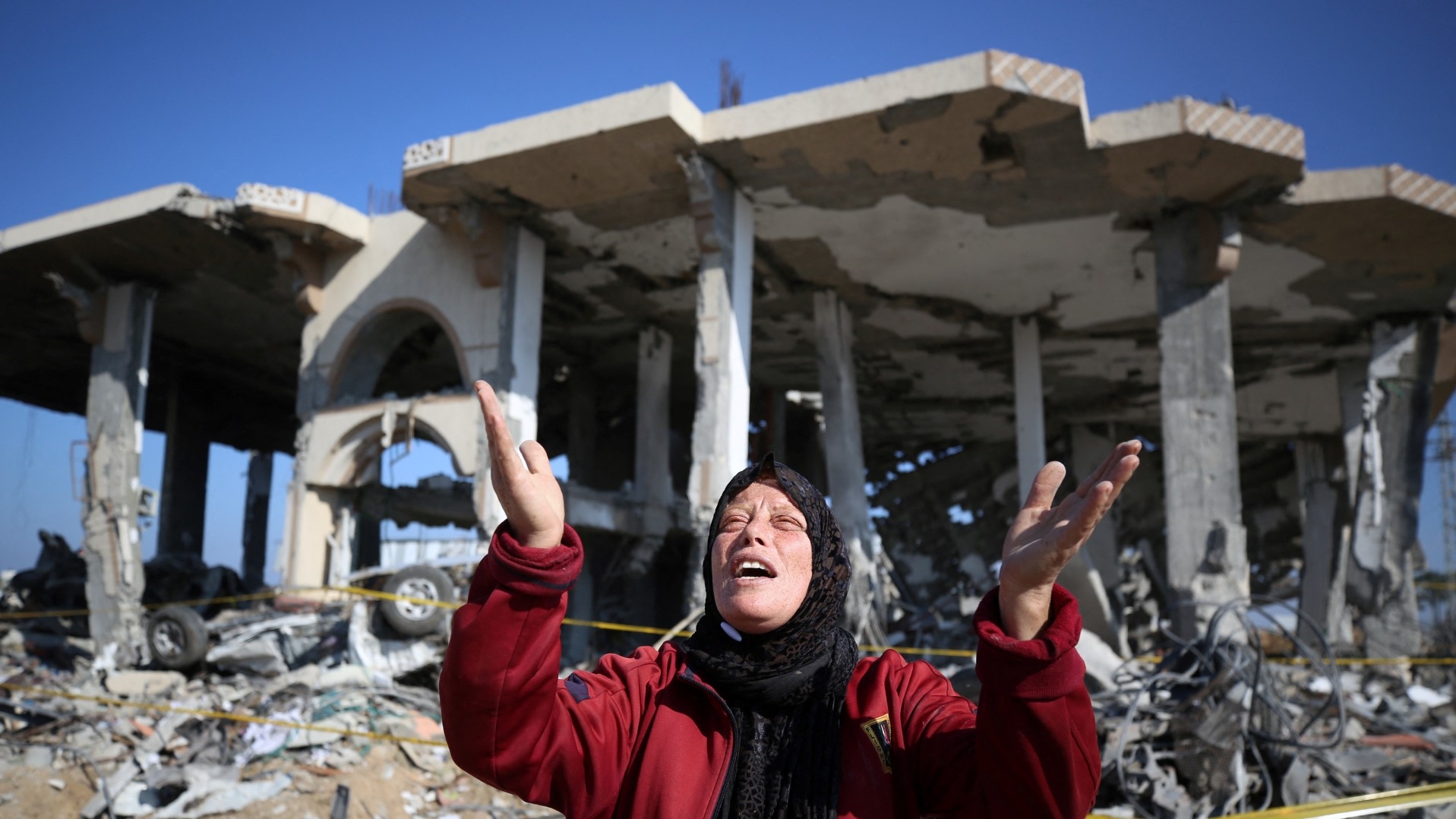
My aunty, forced to leave her home under Israeli orders two months ago, sits on a thin mattress, on the sand, in a blue tent, cradling her youngest grandchild in her arms.
Like thousands of children in Gaza, he’s not well. It must be the contaminated water they drink. I think of her journey from her beautiful home in Tuffah neighbourhood to this tent that houses 16 of her family members.
For months, she escaped the bombs, running from shelter to shelter, praying not to lose anyone she loves, but losing many just the same.
Did anyone tell her that her 10-year-old grandchild’s corpse was left to decompose for five days after an Israeli tank fired into her daughter’s home? Did she know her daughter sat with a gushing wound on her head, holding the corpse of her dead son while her two other children and husband were left bleeding, inhaling the stench of death, for five days while Israel blocked any ambulance from reaching them?
These are the stories that haunt us.
New MEE newsletter: Jerusalem Dispatch
Sign up to get the latest insights and analysis on Israel-Palestine, alongside Turkey Unpacked and other MEE newsletters
Many will say this is the second Palestinian Nakba, and it is for the majority of Palestinians in Gaza who were driven from their homes and lands in 1948.
But for my family, and for nearly 30 percent of Gaza’s population, this is our first experience of Nakba. This is the first time our connection to the city that has held our lives, our stories, and our history, for thousands of years, has been disrupted.
The house my aunty was driven out of belongs to my great-grandfather and was first built during the Ottoman empire, more than 100 years ago. Our neighbourhood, Tuffah, and its adjacent Mohatta Street, where the old railway station used to be, are much older than Israel and all its wars.
Happy memories
I push away these thoughts. I search for a happy memory. Gaza in July of 2023.
Noise. Heat. Colours. Flashing lights. Cars. Music. Smoke. Food. Laughter. My husband and I climbing the stairs of the Lighthouse restaurant, along Gaza beach. Our son, Nahed, eager to introduce us to his UNRWA colleagues, Hani a Palestinian-American colleague from UNRWA USA, content creators Motaz and Amjad, and Joe, a young Gaza tour guide and influencer.
Follow Middle East Eye's live coverage of the Israel-Palestine war
Motaz asks if he can come over to our apartment to shoot the sunset. "What kind of photos do you take?" "Only beautiful ones," he smiles. "I want the world to see Gaza’s beauty."
Joe agrees. The young man tells us that he too only posts beautiful videos of Gaza.
"It is one of the most beautiful cities in the world!" he boasts, with young, unbridled enthusiasm.
I strike a deal with both young men. Motaz can take as many photos from our apartment as he likes if he shares with us his beautiful collection. He promises he’ll take special photos just for us to keep.
Joe offers to take us on a tour of the old city.
My husband and my son discuss with Hani plans for a seaside concert. As well as his work for UNRWA USA, Nahed is also a composer, and he has enlisted the Gaza branch of the Edward Said National Conservatory of Music, and Gaza’s popular SolBand, to participate in a live music concert and fundraiser.
Amjad and I sip on our cold mint lemonade and drift into a conversation about life in Gaza, especially for progressive women.
"Yes there are challenges," she says. "But despite the wars and the siege, this is our home. I don’t think I would ever want to leave."
Nahed’s "Gaza to the World" concert runs smoothly. We are so impressed by the musical talent and training of Gaza musicians, which rivals that of any other city in the world.
'My generation needs hope'
Joe takes us on his special tour of the old city. We visit the Church of Saint Porphyrius, the Great Mosque of Gaza, eat in the old bazaar, browse the antique shops in the old al-Zawya market, visit the ancient Samara baths, and end with cardamon coffee and namoura dessert in a restored heritage home, where we learn how our ancestors stored their food and kept their homes cool in the summer and warm in the winter.
Joe tells us that he gets a lot of support online, but that sometimes people scold him for only showing Gaza’s beautiful side.
"They say 'there is hunger in Gaza. There is poverty, siege, and frustration. We are prisoners here, and yet you take videos that show none of that. Only beautiful sunsets?’" Joe tells me.
He defends himself. "Enough people are shining the spotlight on the ugly. I choose to show the beautiful," he says. "My generation needs hope. We need hope for a life that is worth living for."
It all passed like a dream.
Our families have lost their homes. All the cafes were destroyed. Gaza City, the old and the new parts, is scorched earth. Many in our families were massacred. UNWRA is reeling; 142 UN workers have been killed, no one is spared.
Doctors, journalists, medics, entire families… the bombs don’t discriminate.
Hani’s father, brother and two nephews, one of them only 13 years old, appeared in photos online. Hani’s brother was among the men stripped to their underwear, hands tied behind their backs, detained by the Israeli army.
They had been taken from the UN school where they were sheltering, and portrayed in Israeli media as Hamas terrorists, before being released for having no connection at all to Hamas.
'There is nothing left here'
There is so much talk about defeating Hamas and deradicalising Palestinians. Yet every war Israel undertakes bolsters Hamas. Because in every war, it is the people who suffer, their history, their culture, their art, their music, and their heritage.
Wiping out Gaza only makes Palestinians hate Israel more. The easier and more effective way to weaken Hamas would have been to give Palestinians hope in a future free of occupation and tyranny.
Motaz, Amjad and Joe were forced with their families into the far south, as spaces, and hope, continue to shrink beneath their feet. Amjad is looking for a way to leave Gaza. So is Joe, who sent me a heartbreaking message.
"There is nothing left here," he said. "There can be no life here. They destroyed everything."
Motaz, who has become one of the most important voices from Gaza, with more than 18 million followers on Instagram, only manages to send a few love hearts as a response to my inquiries about his wellbeing.
"This camera will only capture things that can inspire beauty and love," he had said to me in our apartment in Gaza City on that July day in 2023. Now I wonder how many dead babies and bloated corpses his camera has captured.
My phone pings. I receive a new video of my aunt walking through the tents in Rafah muttering prayers. Her son’s voice asks: "Who are you praying for?"
She points at the tents: "These poor people who live in these tents. I don’t know how they do it. May God give them strength."
Her son asks: "Did you forget? You are one of these people now."
She gives a wholehearted laugh. Her face, darkened by the sun, and coated with a layer of dust, momentarily flashes features of a time long passed.
"Oh yeah," she giggles. "I forgot. I am one of them."
The views expressed in this article belong to the author and do not necessarily reflect the editorial policy of Middle East Eye.
Middle East Eye delivers independent and unrivalled coverage and analysis of the Middle East, North Africa and beyond. To learn more about republishing this content and the associated fees, please fill out this form. More about MEE can be found here.


